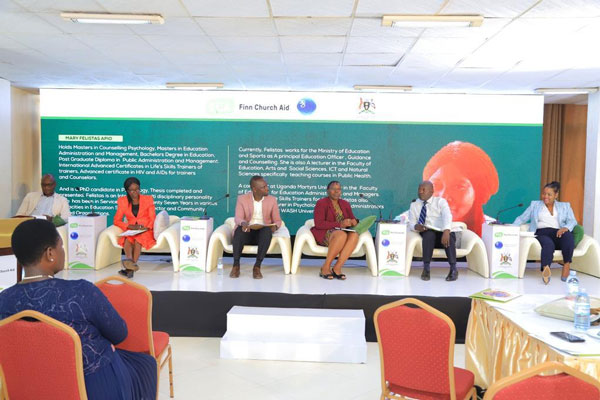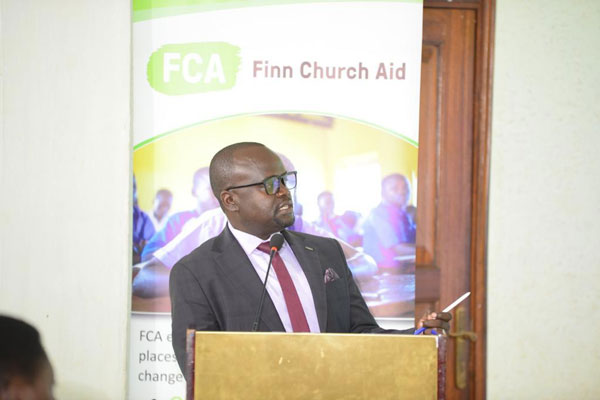
Kampala, Uganda | THE INDEPENDENT | A study done by Finn Church Aid and Ministry of Education has found that Ugandan schools generally appreciate the importance of Career Guidance and Counselling (CGC) and are willing to support their learners. However, they generally perceive it as a once off or once in a while activity with schedules such as once a term.
A survey done in eight districts including Kampala and Mityana in the central, Ntungamo and Kyegegwa in the Western, Gulu and Yumbe in the Northern, and Tororo and Kamuli in the Eastern regions, indicates that 25% and 31% of teachers reported scheduling CGC once a term and once a year respectively.
A learners’ survey also attested to this as 39% of respondents reported that they had received CGC once in a while. However, 41% reported having received some form of CGC three times in a term. Learners also expressed receptive opinions as 71% of them noted that they would prefer to receive such information on a weekly basis.
A dissemination event for the study on Career Guidance and Counselling was held July 20 at Hotel International Muyenga – Kampala.

“CGC is generally not given adequate attention; hence, it is not adequately implemented. In most cases, it is either covered thinly under general guidance and counselling and mixed with discipline, reproductive health, and gender issues, or it is only restricted to guidance activities on study choices at higher institutions of learning,” said Sam Rutahindwa of Finn Church Aid while presenting the study report.
“About 40% of the schools only reported emphasis on guiding learners to fill their Public University Joint Admission (PUJAB) or Joint Admission Board (JAB) forms as all they do under CGC.”
Finn Church Aid (FCA) earlier this year embarked on the supporting development of a robust national Career Guidance and Counselling (CGC) framework, aimed at developing a system for supporting learners to make informed career decisions at every stage of learning. This effort started with an assessment on CGC in secondary schools in Uganda, aimed at documenting the current practices, systems, and gaps in schools, and making recommendations for resourcing, re-invigorating and mainstreaming CGC in schools.
The assessment applied both qualitative and quantitative approaches, mainly with in-depth interviews and a learners’ survey in eight districts. Forty-eight schools were sampled, considering location (rural or urban), foundation bodies (Anglican, Muslim, Catholic or Private), performance in national exams, and gender differences (girls’ or boys’ schools).
Overall, 1,339 respondents were sampled from schools (91 teachers/school administrators and 1,248 learners), 56.4% males and 43.6% females. The assessment team interviewed head teachers or their deputies in 28 out of the 48 schools, including 64% males and 36% females, and 63 teachers (39 males and 24 females). More than half (59%) of the learners were aged 15-18, which is the appropriate secondary school going age in Uganda, whereas more than a third (36%) of the interviewed learners were aged 19-20.
The assessment revealed various challenges in the delivery of career guidance and counselling, notably: unclear focus, limited materials which subjects learners to various materials including those that are not approved by the ministry of education/National Curriculum Development Centre, lack of standardisation, limited engagement of key stakeholders such as parents and school governnance bodies and application of various differing approaches within and across schools.
In some cases, CGC is provided by unqualified personnnel, which creates a risk of learners receiving inappropriate content. There is evidence of inadequate knowledge among teachers regarding how to dleiver important packages of CGC, hence exposing learners to risks of receiving inadequate and unclear content or even receiving no content at all.
“If the status qou remains the same, definetly the outcry will continue about mismatch of the skills we produce and the skills that we need. Also, we shall have the frustration of the youth because when I finish school and I don’t get a job or everyone rejects me, I may not appreciate that what I did was not very applicable” said Rutahindwa.
“CGC is generally appreciated by schools, and all the schools covered by the assessment have taken some efforts to support to their learners. This is an important foundation to build on and provide the requisite CGC support to learners,” the authors of the report said in a statement.
The report went ahead and recommended teacher training institutions having to revise their training content to emphasize CGC during pre-service and in-service training. This will equip students and qualified teachers with relevant knowledge and skills during their professional training and development.
 The Independent Uganda: You get the Truth we Pay the Price
The Independent Uganda: You get the Truth we Pay the Price





